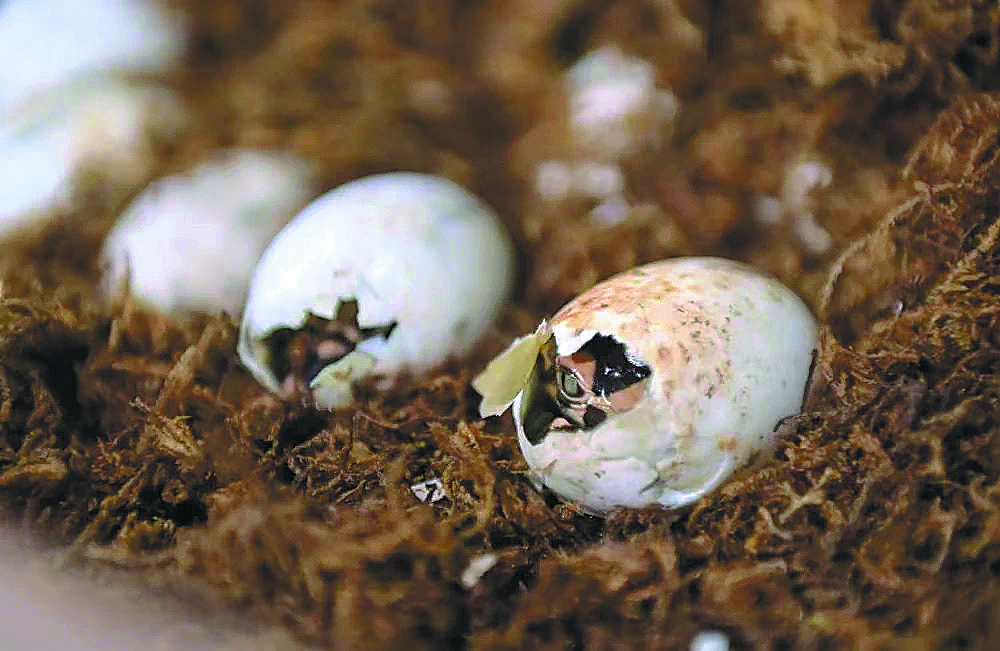Protective measures help Chinese alligators thrive


Low point
They are referred to as "living fossils" because they belong to the same era as the dinosaurs and have existed for more than 200 million years. They were once widely distributed across the Yellow, Huaihe, Yangtze and Qiantang rivers, and other river basins, but their habitat gradually shrank to the lower reaches of the Yangtze as a result of human activities and climate change.
In 2001, the wild alligator population reached its lowest point, becoming critically endangered with less than 120 individuals.
In May, though, the population in the wild had reached about 1,200 — three times the number recorded in a 2021 field survey.
For more than 40 years, Zhang and She patrolled the reservoir, urging villagers to stop fishing with nets and promoting the importance of alligator protection.
She said that during the day, she and her husband observed the alligators' activity around the reservoir, and at night Zhang sat under a lamp, diligently recording every detail of the alligators' activities. The couple even continued their vigil during the animals' annual hibernation period.
Zhang, who died in 2005, wrote 23 journals about the protection of Chinese alligators. In them, he recorded details such as patrol times, the number of alligators spotted, weather conditions and vocalization patterns. His handwriting is neat and tidy, with entries such as: "September 4, 2004: cloudy turning light rain, east wind. Observed young alligators entering the water in the morning, and when people approached, the older alligators roared to protect them ..."
He Shaowei, director of the management bureau at the Anhui Chinese Alligator National Nature Reserve, said the notebooks provide important reference materials for experts involved in domestic and international scientific research.
The couple's daily observations and protection efforts made them "local experts" who knew the Chinese alligator best. After her husband's death, She donated 22 of the notebooks to the reserve, keeping just one for herself as a memento.
"These Chinese alligators are an inseparable part of my life: they are my children," she said. Her own observations include details such as: "On the 13th and 14th days of the seventh month of the lunar calendar, the older alligators must lay their eggs. They won't lay eggs after the 15th"; "Once the young alligators hatch, they start calling and the older alligators come to dig their nests"; and "If they make a grunting sound, it means it will definitely rain."
When discussing stories related to the alligators, She reminisced about the little details of their growth, recalling them one after another.
"There was one Chinese alligator that got bored in the reservoir and escaped to play in the mountains at night. But it fell into a pit and couldn't get out. It cried desperately for help. When the local villagers found it, they quickly called me. When I arrived, I saw it using its two stubby legs to try to climb out ..."
She remembers that when the reservoir dried up in 1982, some villagers came to fish, and she and her husband couldn't sleep well at night. They were afraid that the alligators would be harmed, so they stayed by the reservoir, politely asking the fishermen to cease their activity. Eventually, they managed to stop the villagers from fishing.























